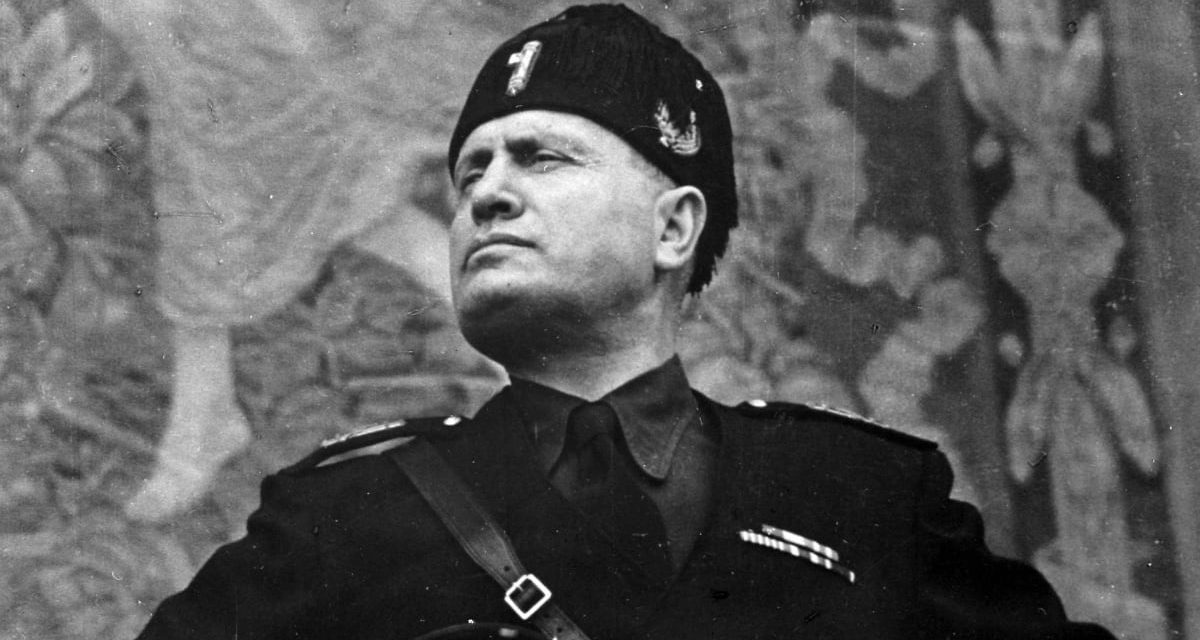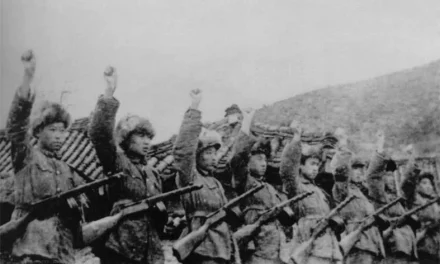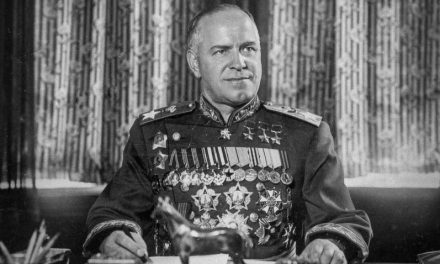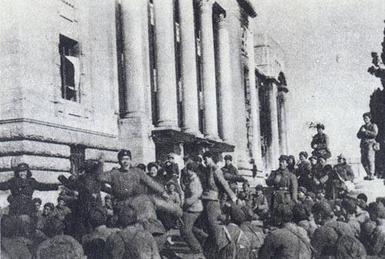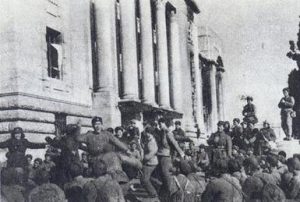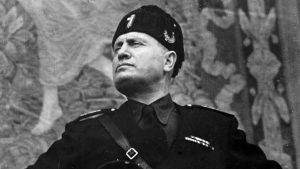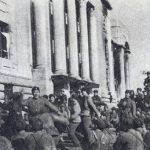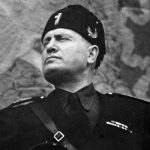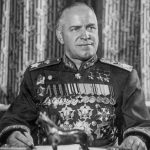On January 3, 1925, Benito Mussolini dissolved the Italian Parliament and declared himself ruler of Italy. This marked the end of democracy in the country and ushered in a new era of fascism. Let’s take a look at what led up to this historic day and how it changed the landscape of Italy forever.
About Mussolini
Benito Mussolini was one of the most notorious figures in modern Italian history and a key leader of the National Fascist Party in Italy. Born in Predappio, Italy on July 29th, 1883, he eventually rose to the position of Prime Minister of Italy from 1922-1943. His political ideology is often referred to as fascism, which calls for great nationalistic pride and centralized government control. He also served as dictator during his premiership, ruling with an iron fist that was oppressive to dissidents and minorities alike.
Mussolini’s ascent to power started when he joined the Socialist party while living in Switzerland in 1904. Here he wrote several articles advocating for revolutionary change within socialism that would ultimately lead him away from the Socialist Party.
Mussolini’s Life in Switzerland
In 1902, Mussolini decided to flee to Switzerland in order to avoid the required military service. He took up a job as a stonemason in Geneva, Fribourg and Bern however he was not able to secure long-term employment.
Mussolini’s time in Switzerland was marked by poverty and hardship. He was forced to take on a variety of odd jobs throughout his stay. Despite these difficult circumstances, Mussolini continued to work hard and educate himself. During this time, he studied Marxist literature—an interest that would shape his later political beliefs.
While living in Switzerland, Mussolini also met many people who became influential figures in his life. As he grew, Mussolini was inspired by the influential works of Friedrich Nietzsche, Vilfredo Pareto and Georges Sorel. He also acknowledged Charles Péguy and Hubert Lagardelle as Christian socialist inspirations for his syndicalist views.
Sorel’s impassioned approach to toppling decadent liberal democracy and capitalism through violence, direct action, a general strike and Machiavellian appeals to emotion greatly influenced Mussolini.
After joining the Italian socialist movement in Switzerland, Mussolini threw himself into his work – writing for L’Avvenire del Lavoratore and organizing meetings to give speeches to workers. He was even appointed as the secretary of a local Italian worker’s union in Lausanne! Fascinatingly, it is reported that Angelica Balabanov introduced him to Vladimir Lenin himself. Despite this, however, Lenin later expressed disappointment at how easily Italy had lost such an important figure from their cause.
In 1903, Mussolini was arrested and detained for two weeks by the Bernese police due to his endorsement of a militant general strike. Afterward, he was deported back to Italy but managed to make his way back to Switzerland in 1904. During this time, Mussolini had falsified papers when attempting re-entry which resulted in him being again expelled from Geneva only shortly after arriving. His next destination would be Lausanne, where he enrolled at the University of Lausanne’s Department of Social Science under Vilfredo Pareto’s teachings. On the 400th anniversary of its founding, the University of Lausanne paid tribute to Mussolini with an honorary doctorate in 1937 while he served as Italy’s prime minister.
Despite the difficult conditions of his life in Switzerland, Mussolini found a way to survive and gain valuable experience that would prepare him for his future career as a political leader. His time spent abroad provided insight into socialism, economics, labor unions, and other ideologies that shaped his beliefs and ultimately influenced his actions when he returned to Italy. Though it was often challenging, Mussolini’s stay in Switzerland proved to be invaluable as he developed an understanding of international affairs that would help him become one of the most powerful men in history.
Availing himself of a pardon for deserting the military in December 1904, Mussolini returned to Italy, where he joined up with the Bersaglieri Corps in Forlì on 30th December that same year. He served his two-year term from January 1905 until September 1906 before resuming teaching afterward.
Mussolini as a Journalist
He then returned to Italy in the early 1910s, where he founded the Fascist movement and newspaper in Milan. The Fascist Party quickly gained popularity with its hardline stance on social reform, which would eventually lead him to be appointed Prime Minister of Italy in 1922, by King Victor Emmanuel III.
Mussolini’s premiership was marked by a number of successes and failures alike. He was initially able to unite a divided Italian people who were looking for strong leadership during a tumultuous time within Europe. He focused much of his efforts on strengthening the economy, primarily through public works projects such as highway construction and agriculture improvements. During this period, he also took an aggressive stance against minorities and heavily censored political opposition within Italy.
On the foreign policy front, Mussolini believed in an imperialist expansion of Italy’s influence and control. He formed a coalition with Nazi Germany in 1936 known as the “Axis Powers”. This alliance led to Italy taking part in World War II alongside Germany, which ultimately ended up being unsuccessful.
Mussolini’s rule would eventually come to an end when he was dropped from office by King Victor Emmanuel III in 1943 due to his failure to lead effectively during the war effort. Following this, Mussolini was arrested and imprisoned until 1945 when he was executed by Italian partisans. After his death, memorials were created worldwide in honor of his legacy within Italy, and fascism continues to live on today, mostly through its use within politics in countries like Russia and Turkey. Overall, Mussolini’s life is a testament to the power of strong leadership in times of crisis and his legacy will remain prominent for years to come.
The March on Rome
In October 1922, Mussolini called for a “March on Rome,” where thousands of Blackshirts—fascists loyal to Mussolini—marched from Milan to Rome, demanding that King Victor Emmanuel III appoint Mussolini as Prime Minister or face revolution. In response, Victor Emmanuel had no choice but to comply with their demands and appointed Mussolini as Prime Minister. This gave him control over the executive branch of government but he still lacked control over the legislative branch, which was held by other political parties like liberals and socialists who opposed his fascist ideology.
That’s why on January 3rd, 1925, Mussolini used emergency powers granted by King Victor Emmanuel III to dissolve parliament and become a dictator. With this move, he eliminated any hope for democracy in Italy since there were no longer any checks or balances against his power. From then on, all laws passed would require only his approval, which enabled him to enact sweeping reforms that restructured most aspects of Italian life, including education, religion, labor rights, censorship laws, foreign policy etc.
The End of Democracy
Once Mussolini had assumed power as Prime Minister, he set about systematically dismantling all opposition to his rule by silencing critics through arrests and imprisonments or exile, suspending civil liberties like freedom of speech and press censorship, eliminating political opponents through violence or intimidation, abolishing labor unions and strikes, restricting religious freedoms (especially those opposed to Fascism), and streamlining government bureaucracy with more efficient control methods. By 1925 he had achieved total domination over Parliament; thus, on January 3rd, he dissolved Parliament entirely and declared himself dictator – officially ending democracy in Italy at last.
Conclusion
The dissolution of the Italian Parliament on January 3rd, 1925, marked one of the darkest days in Italian history but it also set the stage for decades worth of tyranny under Benito Mussolini’s rule. It is a reminder that democracy can be fragile even when it appears strong and must be constantly safeguarded or risk being taken away completely without warning or consent from its citizens.

